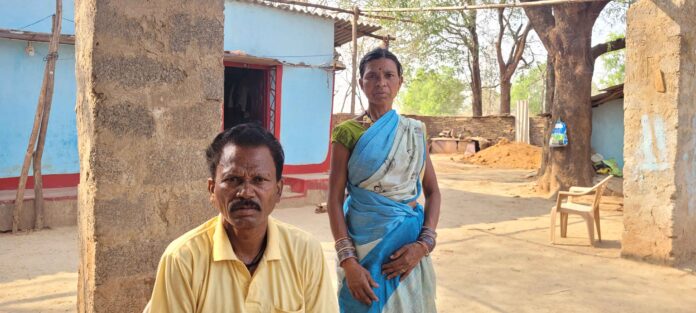Poonam Masih, TwoCircles.net
Jagdalpur (Chhattisgarh): “What could I do? There was immense pressure on me to do ghar wapsi (homecoming or return to Hinduism). If I had not, they would not have let me contest the election, let alone win it,” says Kaner Kashyap, Congress candidate from Errakot Gram Panchayat (village council), who, after converting to Christianity, has been attending church for many years.
During the gram panchayat or local body elections, held in February, posters of a man in a court suit were put up in different wards of Errakot, urging people to vote for the ‘spectacles’ symbol. It featured a photo of Kaner Kashyap. He resides in Errakot and officially reverted to Hinduism in 2023.
Asked why did he do so, he explained, “I have been contesting elections for the past 25 years, and every time I lost by just five to seven votes. I finally won in 2020. I was a Congress candidate, and all the ward panchs (members) were from the Bharatiya Janata Party (BJP, a Hindutva supermacist political outfit). There are 20 wards in my panchayat.”
He further said, “Between 2022 and 2023, the pressure from ward members and the public to revert to Hinduism intensified. Of the 20 wards, Christians are in majority in three while the remaining 17 are dominated by Hindus. They did not allow meetings in the panchayat building. People were discouraged from coming to me for any official work. They even started demanding that I be removed from the position of sarpanch (head of the village council). Eventually, I had to do ‘ghar wapsi’. But neither I nor my family is happy with this decision.”
Launched by Right-wing organisations with an aim to bring people back to Hindu faith and culture, ‘Ghar Wapsi’ campaign has been ongoing in Chhattisgarh for a long time. As part of the ritual, people’s feet are washed, symbolising their formal return to Hinduism.
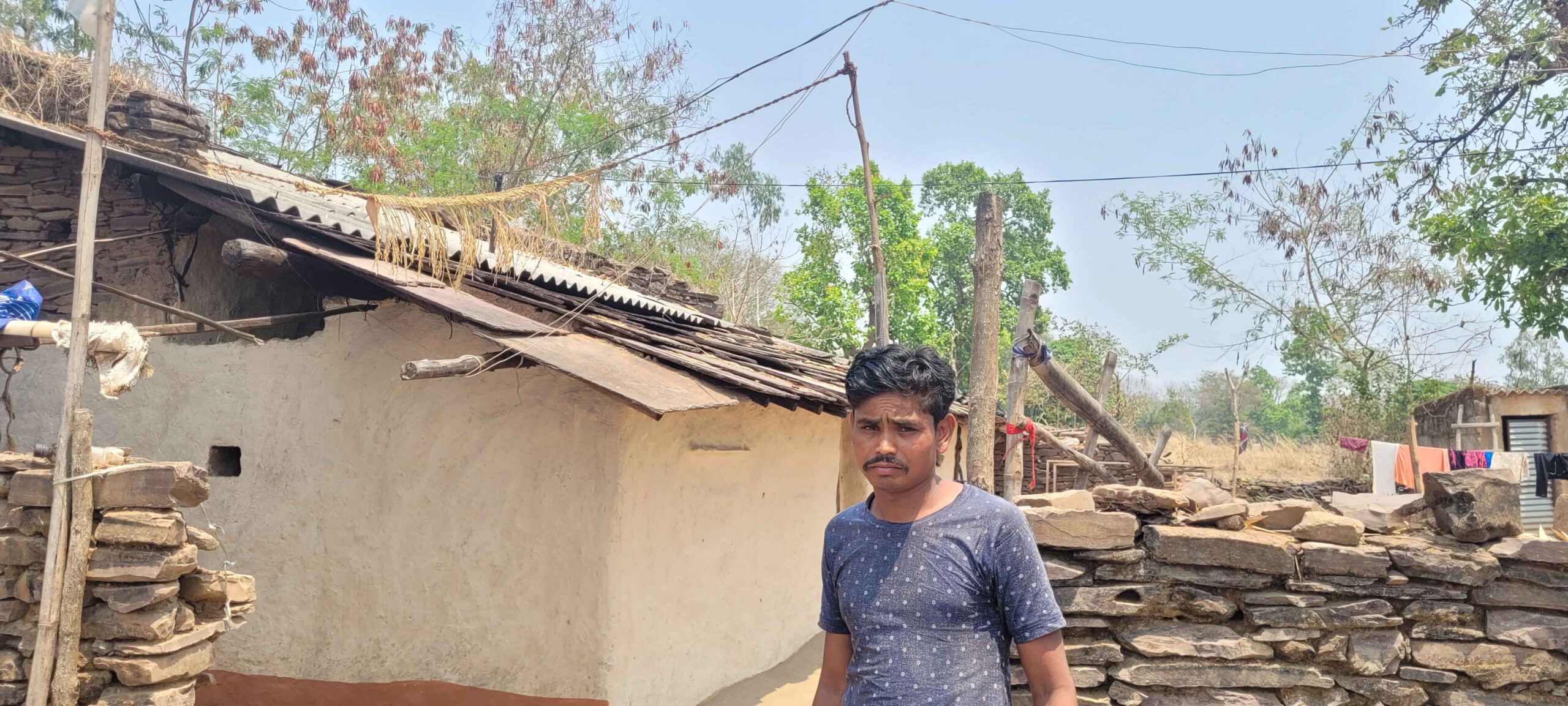
Prabal Pratap Judev, a BJP leader and member of the royal family of Jashpur, has been leading these efforts for years, following in the footsteps of his father, Dilip Singh Judev, a minister during the then Atal Bihari Vajpayee-led BJP government in the Centre. He and his family have long-standing ties with the Hindu nationalist Rashtriya Swayamsevak Sangh (RSS), the ideological mentor of the BJP.
According to Prabal, Christian missionaries convert Adivasis (Indigenous or tribal communities) by offering inducements: and therefore, “it is important to educate people about Hinduism”.
At present, the RSS and its affiliate, Vishwa Hindu Parishad (VHP), are actively conducting ‘Ghar Wapsi’ events across different parts of Chhattisgarh, often involving local participation.
When asked how long he had been attending church, Kaner replied, “My family and I went to church for 15 years.”
He said, “We were going through some difficulties at home. I was also unwell. I tried various treatments and religious rituals, but nothing worked. After going to church, my health improved, and things started getting better at home. That is when our whole family began going to church.”
During those 15 years, he said, no one ever objected. But from late 2022 onwards, pressure began to mount, especially from BJP-affiliated villagers. “They said if I did not return to Hinduism, I would be removed from my post. At last, I was made to revert by having water sprinkled on me. But I am not happy about it,” he said.
Boti Ram Kashyap, a Muria Adivasi from Errakot, had a similar experience. He lives with his wife and young daughter.
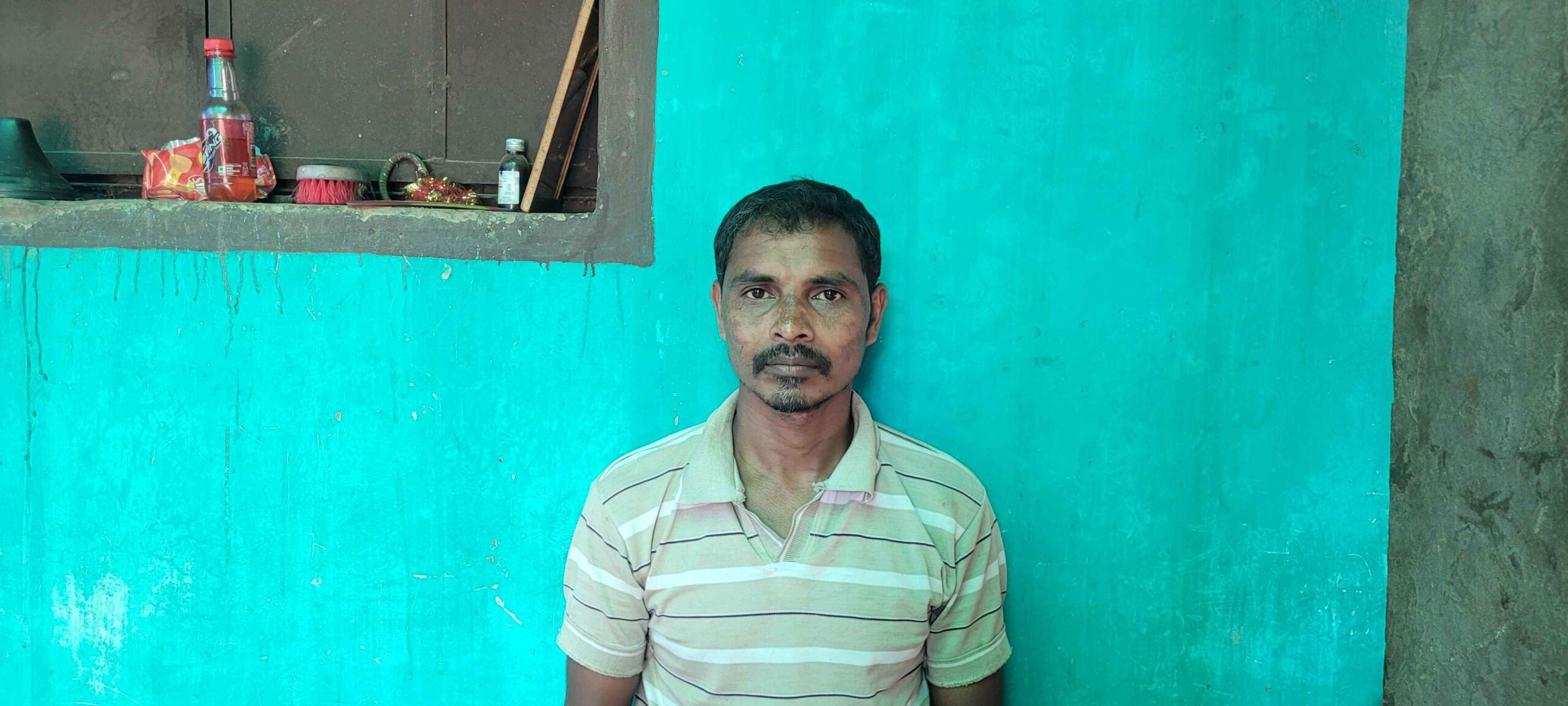
“I had been ill for years. My wife too. Some villagers suggested we go to church. After we started going, our health gradually improved,” he claimed.
“I went to church for about five years. But in 2023, people, including members of my own family, began opposing it. They threatened us,” he alleged.
Boti has five brothers. Only he and the eldest used to go to church, the rest followed traditional customs.
“I was repeatedly threatened. They would not let me collect ration. They threatened to throw us out of the house. So in 2024, I underwent ‘Ghar Wapsi’. But my elder brother did not face any pressure and still goes to church,” he said.
When asked whether he wants to return to church, he said, “Yes. Ever since I stopped going, I have been falling sick again. I want to embrace Christianity, but I am too afraid.”
Boti said it was one Aytu Korram, a member of his ward who is allegedly affiliated to the BJP, who had organised his ‘Ghar Wapsi’. He allegedly played an active role in organising reversions in Errakot.
When this reporter visited the village, Aytu sitting under a tree with a few people. When asked about ‘Ghar Wapsi’ campaign he leads, he got upset and reacted with anger. He finally agreed to talk after he was pacified by a local journalist who convinced him in local Gondi language.
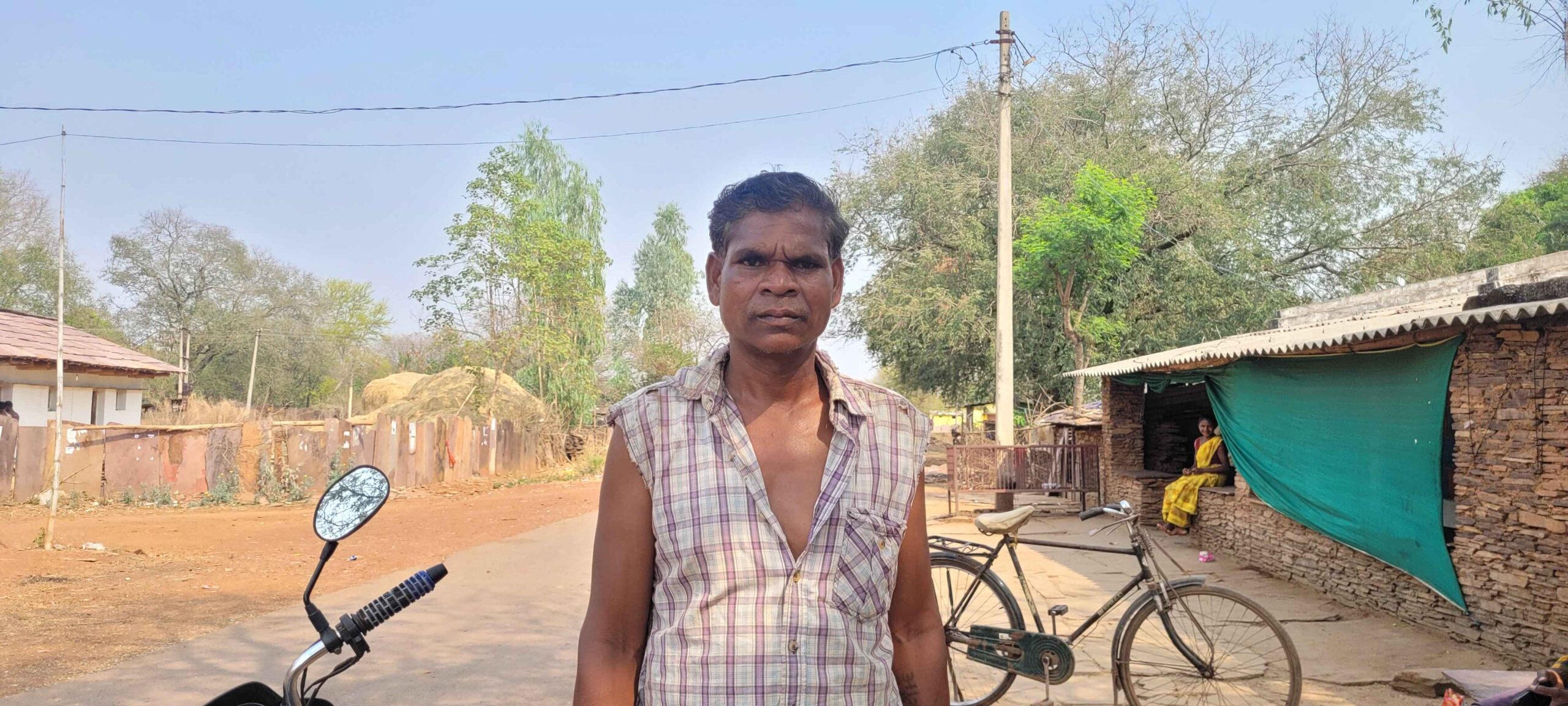
“It (the reversion campaign) started in 2020. BJP members are involved. We do this to preserve our culture. A priest conducts the entire ritual. When a family expresses the desire to revert, we prepare for it. People from outside the village are also invited, along with organisation members. The ritual is performed at the village temple, with water sprinkled on the converts,” he explained.
‘No Peace’ Even After Death
Often through alleged coercion, exclusion and fear, the ‘Ghar Wapsi’ is not limited to Adivasis who have recently converted. It also targets people who were born into Christianity. Under the VHP’s ‘Ghar Shuddhikaran’ or home purification programmes in Bastar, even second-generation Christians are allegedly being reverted to Hinduism.
Initially, the “pressure” is subtle – “social isolation”, “denied access to public spaces” and sometimes “threats to livelihoods”. It allegedly intensifies later after a death, when families are allegedly told that burial according to Christian rites will not be allowed unless they revert to Hinduism.
One such case is Kamtu Mandavi, a resident of Chhindbahar, 15 km from Jagdalpur. He claimed that he was born into a Christian family and represents the second generation of Christians in his household.
“My father converted before I was born. Both my parents attended church regularly. But in recent years, Christians in Bastar are not being allowed to bury their dead,” he alleged.
“In 2024, when my father died, some people came to our house and opposed the burial. My family was pressured to revert. We had no choice as our extended family still followed tribal traditions,” he said.
Over the past few years, Christians across different districts of Chhattisgarh have allegedly faced growing challenges in burying their dead. Earlier this year, the body of Pastor Subhash Baghel was only allowed to be buried after a Supreme Court order.
According to locals, such moments become ideal opportunities for Hindu groups to allegedly exert pressure for ‘Ghar ‘Wapsi’ campaign.
When about the allegation of denial of burial as per a particular faith, Rajaram Todem, former BJP MLA from Bastar and executive chairman of the Chhattisgarh Sarv Adivasi Samaj, said, “Due to the increasing tensions over burial rites, many people are choosing to return to Hinduism. They are told that if they do not follow traditional customs, they will face problems again in the future.”
He added some people revert to “their Hindutva root” voluntarily in such situations. “We are trying to preserve our culture and traditions. Without them, what is the meaning of Adivasi life?” he asked.
Todem said the ‘Ghar Wapsi’ movement in Chhattisgarh began in the Sarguja region and was led by the VHP. In Bastar, the campaign is jointly run by the VHP and the Chhattisgarh Sarv Adivasi Samaj. Local villagers, he claimed, are central to the process. The campaign is even discussed during village gram sabhas (village council meetings). Once people agree, he said, priests carry out the formal rituals.
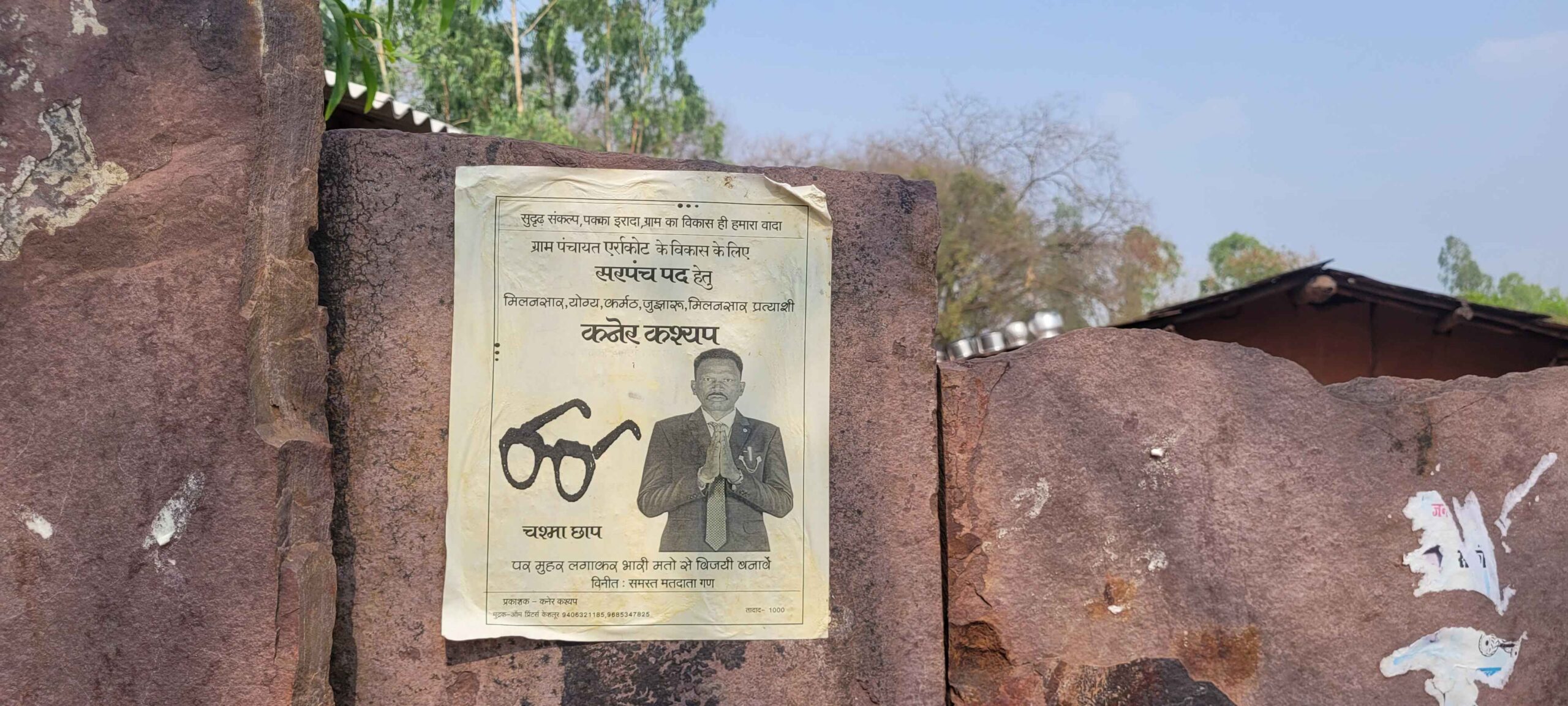
In January this year, when the pastor died in Chhindwara, locals, allegedly BJP members, reportedly refused to allow his burial in the village. They allegedly demanded that the family must return to Hinduism if they wanted to bury him locally. A few individuals are allegedly appointed in villages to enforce this and prevent Christian burials.
Ravi Brahmachari, a VHP leader working in Bastar for the past 40 years, said the organisation now has youth representatives in nearly every village. “Everyone is connected via WhatsApp groups. Whenever an incident occurs, a message goes out and people gather immediately, especially in cases related to burial,” he said.
Ratnesh Benjamin, state vice president of the Chhattisgarh Christian Forum, alleged the Christian community has long been “targeted” by Hindutva groups. “Poor Adivasis are being coerced into ‘Ghar Wapsi’ through threats and intimidation. Those who can resist do not convert. But the poor, who lack means to fight back, are forced to,” he alleged.
When asked for an official data on how many ‘Ghar Wapsi’ cases have occurred, Rajaram Todem dodged the question and offered no answer.


